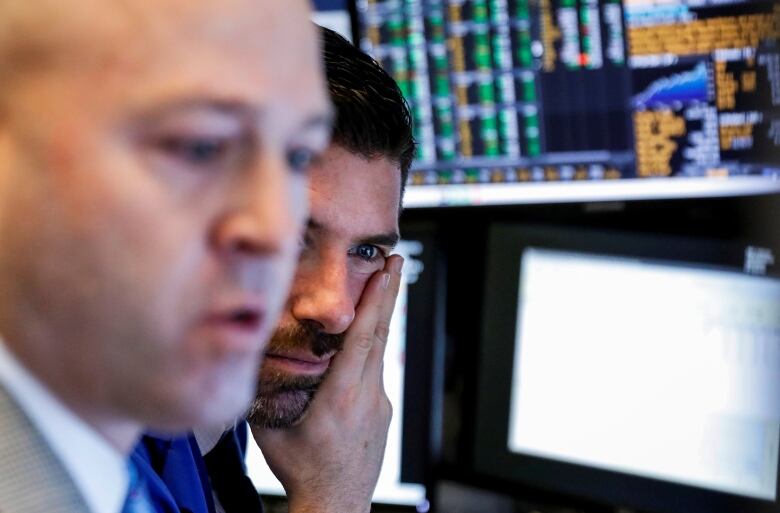New investors who thought markets only skyrocket learn a useful lesson: Don Pittis
Healthy stock markets don't just go up and stocks are not supposed to move in unison

Don't believeanyone who tellsyou they know for certain what stocks will do next.
If theircrystal ball actually worked, they would be lounging on a private island, or maybe doing something more useful with their life than mere money-making.
More likely, in a world where so many people are investedfiguratively and literally in stock markets, they are telling you what they hope will happen next or what they want you to believe.
But with any luck, there is one thing stocks won't do, and that is resume their one-way,co-ordinatedjourney into stratospheric valuations.
Soaring likeFalcon Heavy
With the proviso that no one knows for sure, there are good reasons why stocks are unlikely to immediately return to their former pattern of soaring like a red Tesla on the top of a Falcon Heavy rocket.And that's a good thing.
As more thanone wisecommentatorhas pointed out, the unusual thing about stock markets is not that they have zigged and zaggedby a few per cent over the past twoweeks. The strange thing was what came before.
And for people who have poured into index fundsexpecting more and more of a good thing, the sudden reversal has come as a rude surprise.

Just as with the bitcoinmania, when markets have gone up for long enough, speculators with short memoriesbecome overconfident and reckless. Now that the digital currency market has crashed from its highs,it turns out thata large chunk of the money they invested was borrowedand many fingers have been burned.
According to market parlance, a short, sharp decline in prices is a correction. A much deeper, longerdecline is called a bear market.
At the beginning it is difficult to tell the difference. Arule of thumb is that a correction is a drop of 10 per cent from the market peak. Abear requires at least a 20 per cent decline.
Bitten by a bear
Bear markets are not pleasant and can go on for years. And it is not just the stock market that is affected. After the Japanese market's peak in 1990, the long bear market created ten years of economic stagnation still referred to as Japan's "lost decade."
On the way up, everyone was too busy saying"wheeee!" torealize whatwas happening.
While markets were soaring, business commentators talked about the Japanese miracle and how to imitate it. Only after thecrash and decade-longdeclinedid it become widely accepted that low interest rates had stoked the market to unreasonable levels.
In Japan, the fear of higher rates suddenly made people realize how much they had borrowed. If that sounds familiar, which it probably does to many Canadians contemplating their mortgages,it should.

Rising bond yieldshave had a similar effect this time around, something market traders should have realized was coming eventually.
Certainly, recent low interest rates on bonds have pushed investors deeper into stocks to get higher returns.
Within the financial industry, which profits from rising markets and profits from the people who invest in them,there may be a conspiracy of silence about the things that can go wrong.
We in the business media may be part of the problem. When markets are rising, we tend to be uncritical and celebratory, imagining that everyone is benefiting. And when things go wrong, our natural inclination is to try to avoid compounding the damage.
While explaining thatwith rare exceptionsstocks always go up over the long term, it's easy to forget to remind less-experienced investors that the rise can face long interruptions, and that returns that seem too good to be true generally are.
Soft landing
While it is good to be reassuring, we must all face the reality that there could be worse ahead. We just don't know.
Falling markets can expose problems few recognized in advance. At the simplest level, retail investors using online discount brokerages this week were shocked to find the trading system collapse under the strain when they tried to sell out of a falling market.They will be more wary in the future.
How amazing is this? Watch @SpaceX nail the landing with the #FalconHeavy boosters! https://t.co/xQGGl5cBuJ pic.twitter.com/ssQYFRVHHl
—@SPACEdotcomIn Japan in 1990, as well as in the U.S. in 2007, it tooka while to find out where all the bad debt was hidden.
Hopefully, central banks are a bit wiser these days.
With Janet Yellengone, the new chairof the U.S. Federal Reserve, Jerome Powell, is under pressure toplay his cards carefully and avoid the temptation to try to restart the upward spiral in stocks and other assets that we now finallyrealize could come to a bad end.
With luck, this is not the bear, but a warning. No one knows for sure.
We can hope it's a warning that stock markets, so thrilling when they are rushing up, can beterrifyingmonsters when they are rushingdown.
It is a warning that inhealthy markets, stocks should not all rise and falltogether on fevered speculation like a set of digital currenciesimpelled by cheap moneycreated by central banks. Companies should succeed or fail according to theirindividual merits.
And if we are lucky, even after launching like a rocket ship, the market can come safely down toearth.
Follow Don on Twitter @don_pittis
More analysis from Don Pittis












_(720p).jpg)


 OFFICIAL HD MUSIC VIDEO.jpg)
.jpg)



























































































